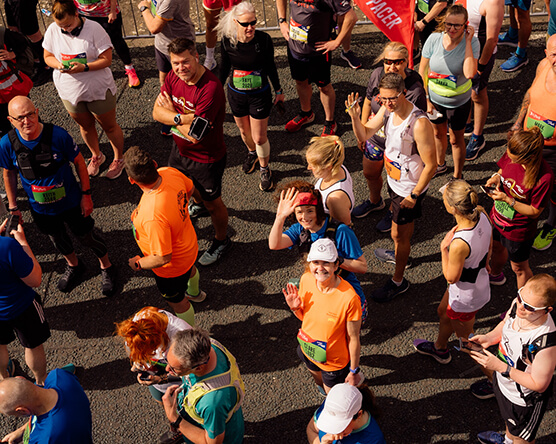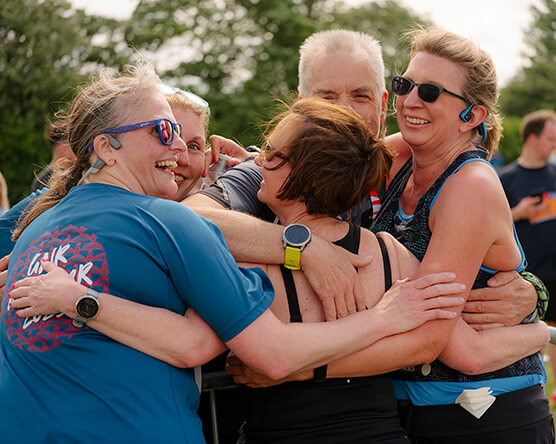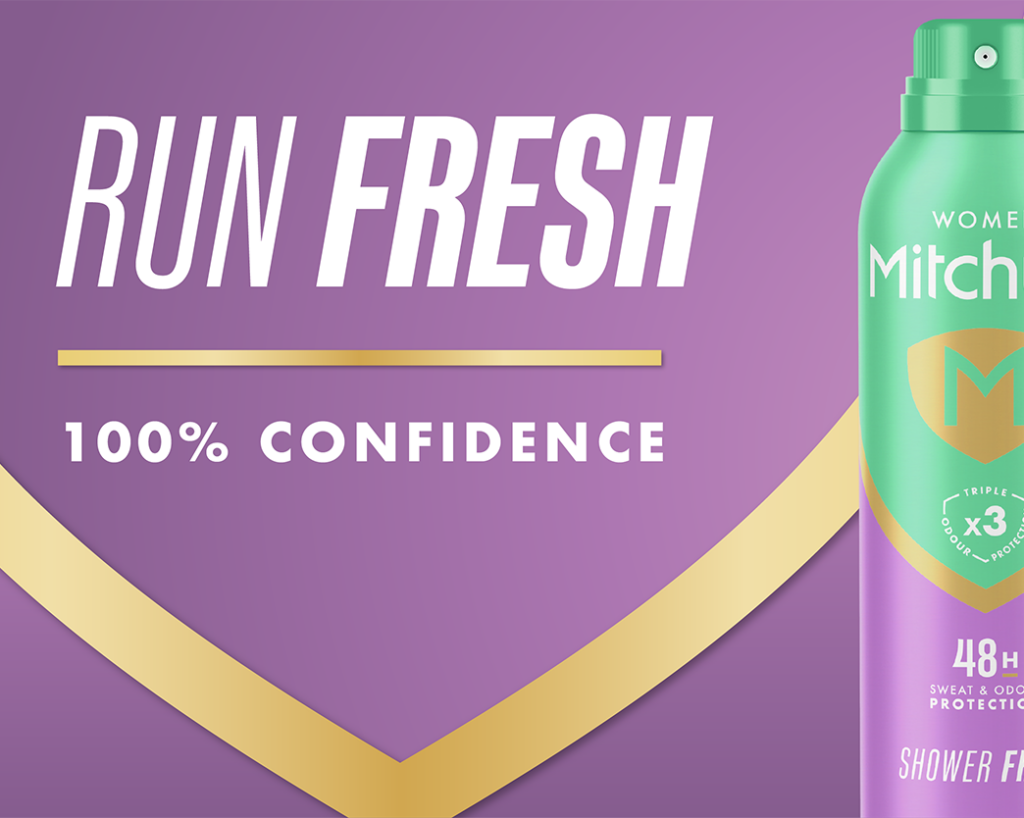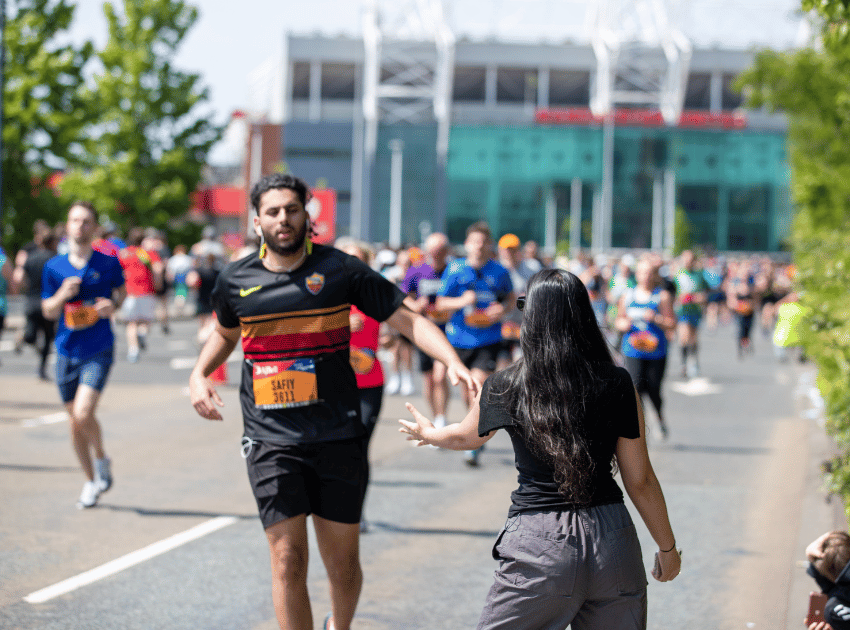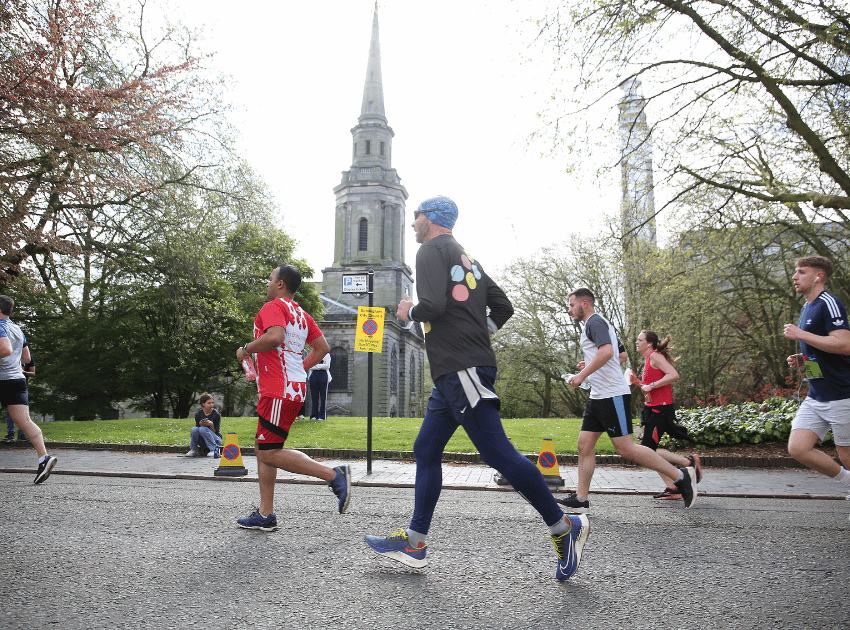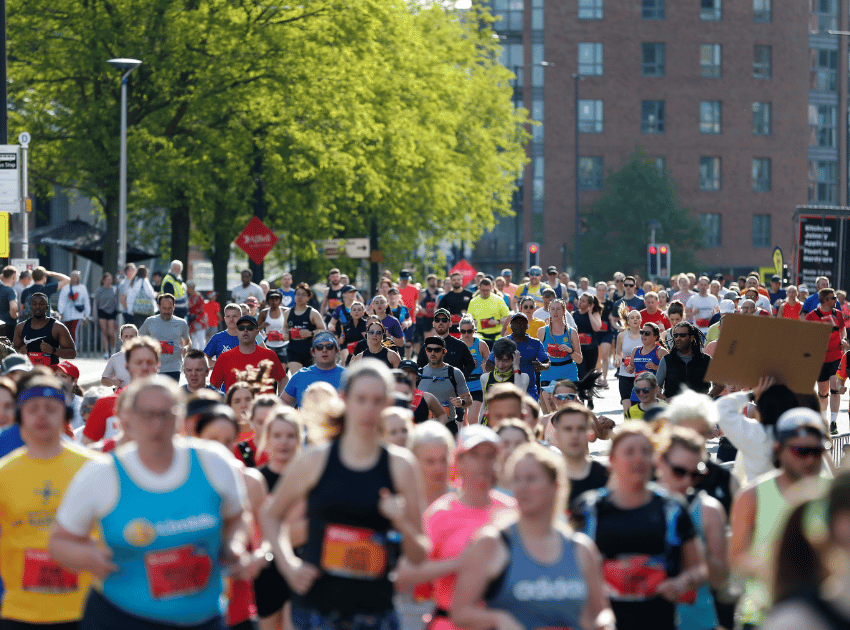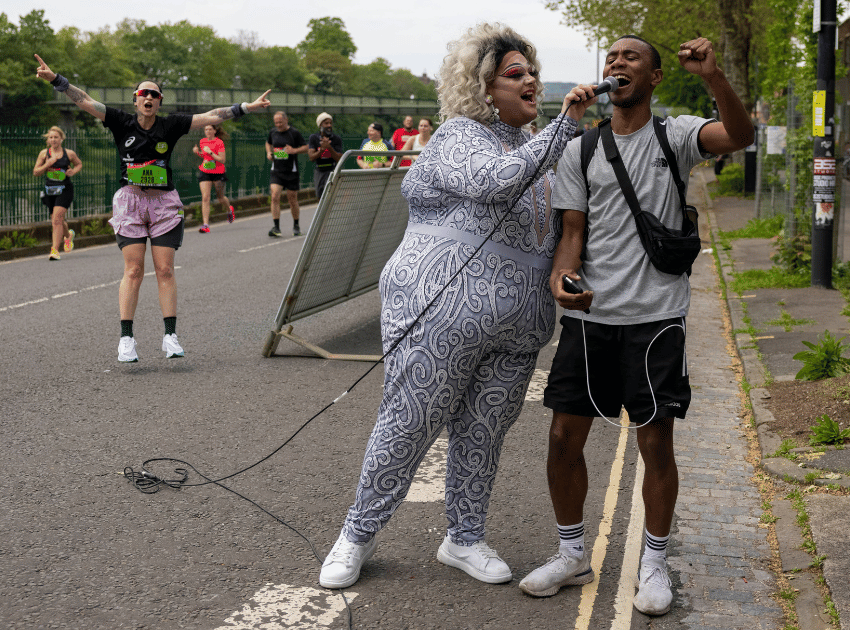“What pace should I be running at?”
“What’s a good running pace?”
“What’s the average time for a half marathon?”
If you’ve ever typed these words into Google wondering whether your pace is ‘good enough’, you’re not alone.
Even if you started running purely as a way of feeling fitter and healthier, it’s hard to resist rating your performance against others. And once you’ve entered a race – whether it’s a 5k, 10k or half marathon – it’s even more tempting to compare yourself.
Will race nerves mean you go too fast and burn yourself out? Or will you be the slowest person there?
Well, we can tell you a little bit about the average pace for men and women in the UK, but also why you should take those figures with a pinch of salt – and why the best running pace is the one that works for you.
On your marks, get set, let’s go!
Average mile times
According to thousands of Strava runners’ data, the average time it takes for a person to run one mile is – drumroll – 10 minutes 40 seconds.
But before you say “That’s pretty slow” or “Woah, I could never do that”, remember that pace depends on a huge number of factors: your age, gender, height, weight, weather conditions, experience, the weather – even what you had for breakfast.
If you’re able to run a mile, congratulations. Now try running a little bit faster or a little further. The only person you need to compare yourself with is…you.
Average 5k times
The average 5k time? That’s 35 minutes.
Again, before you applaud yourself – or despair – remember that you’re not average. You’re you. A sub 18 minute 40 second 5k (i.e. the top 1% of runners) might be well within your grasp, or a 45 minute 5k might be an applause-worthy achievement.
Further or faster?
Another question that often comes up – should I be running further or faster? Well, there are benefits and potential disadvantages to both.
Feel the burn?
Yes, running fast can help you burn more calories if that’s your goal, but actually for each minute you shave off your average pace you’ll only actually burn around 10 extra calories. Sure, that’ll add up over time, but it’s not as significant a difference as you might think.
Avoiding injury.
Running too far and/or too fast is one of the most common mistakes runners make and can lead to annoying – and painful – injuries. If you’re focusing on distance, don’t add on more than 10% to your previous longest run. Increasing your mileage suddenly will put you on the highway to shin splints, runner’s knee and all sorts of other nasties!
Don’t get disheartened.
A great improver’s running tip is to focus on time rather than on pace or distance. Promise yourself you’ll stay moving – whether walking, jogging, running or a mixture of all three – for fifteen minutes. Then up it to twenty. Then half an hour. You’ll be amazed at how your stamina improves.
Remember: slow is cool, too.
The Guardian recently reported that running times are, on average, getting slower. Why? Because, outside of competitive athletics, running is attracting a new, broader audience – one that wants to enjoy the benefits of running – and running itself – without the pressure.
Interestingly, average Great Run finish times reflect this downward trend: in 2006, the average page for a man running the Great Manchester 10k was 59 minutes; in 2013, it was 1 hour 5 minutes and 44 seconds.
So if you do decide to take things a little slower, sign up for a Great Run near you and you’ll find yourself in good company.



